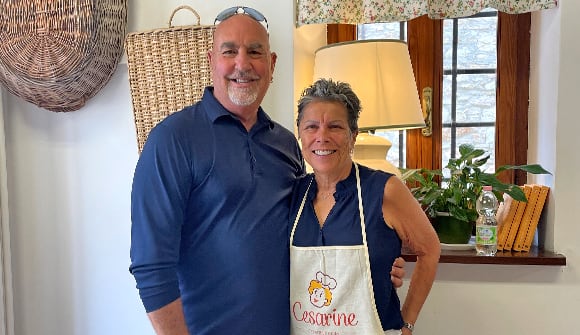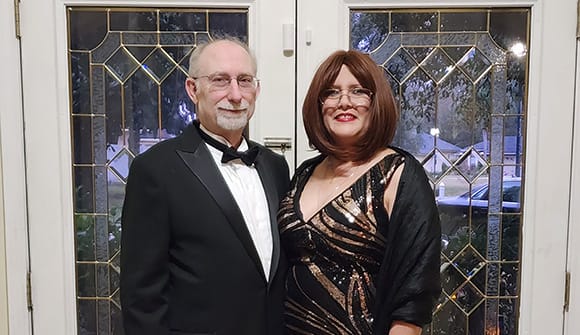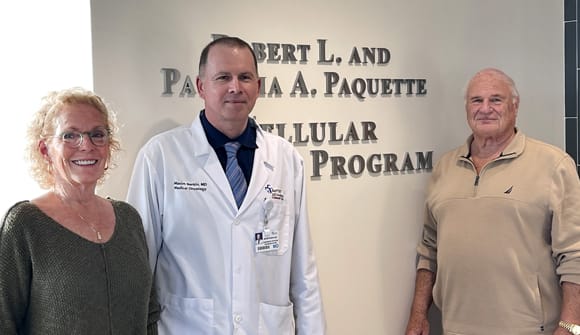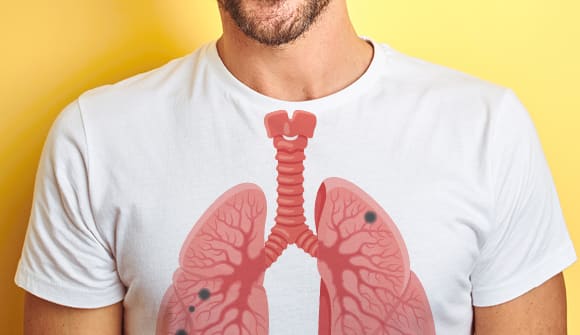From patient to breast cancer champion
Survivor is saving lives, including her sister’s.
Article Date:
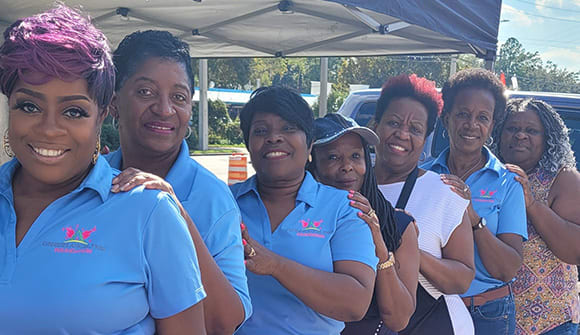
Chris Fluitt is determined to turn a negative into a positive. In 2021, she was diagnosed with breast cancer following a routine mammogram, and since then, the busy 57-year-old hair stylist and salon owner has been encouraging other women in her community to not put off getting their screenings. Fluitt even persuaded her sister, Andrena Jones, to have her first-ever mammogram. And it was a good thing she did, because the exam revealed Jones also had breast cancer.
“Chris probably saved her sister’s life,” said Julie Greenwalt, MD, a radiation oncologist at Baptist MD Anderson Cancer Center who treated Fluitt for invasive pleomorphic lobular carcinoma, a type of cancer that begins in the milk-producing glands (lobules). The sisters, who were diagnosed within a few months of each other, have since had surgery as well as chemotherapy and radiation treatments.
Fluitt had missed her two previous mammograms before her diagnosis. And she’s not alone; many women put them off, especially in recent years.
“There were a lot of delayed diagnoses because people put off screenings during the COVID-19 pandemic,” said Dr. Greenwalt. “The numbers are coming back down, but we saw more advanced cancers diagnosed in the year after COVID-19.”
Fortunately, Fluitt’s and her sister’s cancers were both still in the early stages.
Facing cancer head on
Fluitt learned she had breast cancer from Sonia Sharma, MD, a family physician with Baptist Primary Care.
“I remember the day so well,” said Fluitt. “Dr. Sharma reassured me it’s treatable, and that I should cry, scream or do whatever I needed to get it out of my system because tomorrow we’re putting on our boxing gloves and we’re going to fight. And that’s exactly what I did.”
The next day she received a call from Baptist MD Anderson.
“From day one, the team was amazing,” said Fluitt, from her personalized financial consult to meeting her team of doctors, including Dr. Greenwalt and breast surgical oncologist Cathryn Johnson, MD.
“We were there that first day from 10 am to 6 pm. They didn’t just talk to me, they made little drawings to explain what was going on in my body. I love, love, love those ladies and I’ll carry them with me until the Lord decides to take me,” she said.
In addition to having a lumpectomy, Fluitt had several rounds of chemotherapy and radiation. During her treatment, she and her husband, Marvin, had to move into a hotel after a pipe burst at home. She also learned her son had a brain tumor.
“Our faith was definitely tested,” she said.
Advocating for women of color
Now, Fluitt is advocating for other women, especially women of color. Around 40% more Black women die of breast cancer than white women, according to the American Cancer Society. In fact, Black women have the lowest survival rate of racial and ethnic groups.
“I want to help as many women as I can and let them know that they’re not in this alone,” she said. “I’ve had several tell me they haven’t had a mammogram in four or even 10 years, but now they’re making an appointment.” Fluitt has even organized a series of breast cancer awareness events at her church.
“I think Chris is a really good example of somebody who is super positive,” said Dr. Johnson. “Her treatment course wasn’t easy, but she's on the other side of it now and her boots-on-the-ground approach to educating others is making a difference. She can reach a very important demographic.
“She has a power and influence in her community that we as physicians don’t. And she can encourage others who’ve gone through this to realize the power they have to reach others.”
'Mammograms save lives, period.'
Despite what many people think, you don’t have to have a family history of the disease to get breast cancer.
“If you do, you may need additional imaging, but there’s no such thing as ‘I don’t need a mammogram because I don’t have a family history of breast cancer,’” said Dr. Johnson. “If you’re a woman aged 40 and over, you should have one annually. Period.”
What advice does Dr. Johnson have for women who are afraid to get one?
“Not looking at something doesn't make it go away. Besides, smaller problems have smaller solutions, so it’s better to know than to let it become something that makes itself known,” she said.
Early detection gives you the best chance of treating breast cancer before it spreads. To schedule your mammogram, visit baptistjax.com/mammo or call 904.202.2222. Existing Baptist Health patients can also make an appointment on My Baptist Chart.
Source: American Cancer Society
